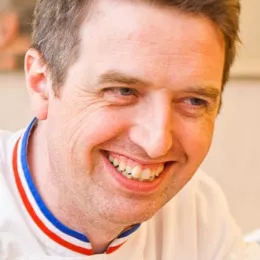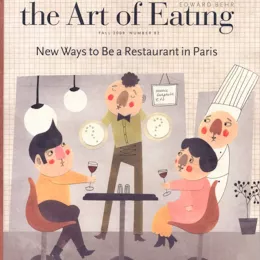As the Executive Chef and Owner of Cull & Pistol in Chelsea Market, ICE Culinary Management alum David Seigal is literally at the center of New York City’s food scene. His refined take on seafood-centric dining has received raves in the Wall Street Journal, Zagat, Tasting Table and other publications. Today, David credits his success with 12 years of “blood, sweat and tears” cooking on the line, as well as his entrepreneurial business training at ICE.
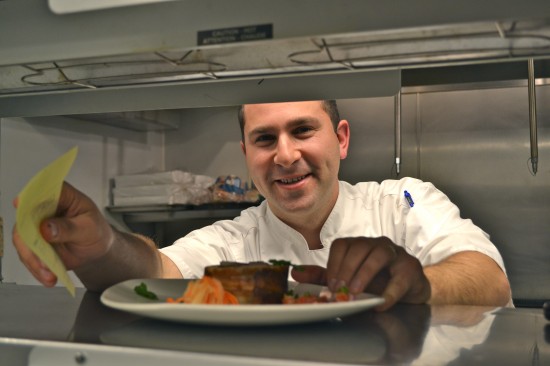
What were you doing before you enrolled at ICE?
I studied Latin American literature at Brandeis University and spent time abroad in Buenos Aires, Argentina perfecting my Spanish speaking skills. (Ironically, this came in handy since there is a large Latino population working in restaurant kitchens and communication is so important.) From there, I spent 3 years in finance working as an equity research analyst at JP Morgan Chase and Bear Stearns.
Prior to opening Cull & Pistol, what have been some of your most formative experiences as a cook?
At the time I was attending ICE, I had left the world of finance to work as a cook at Charlie Palmer's restaurant, Metrazur, in Grand Central Terminal. During that time, I also made it a point to stage in as many kitchens as I could during my free time so I could expose myself to different cooking styles. More recently, I worked on a project with Gary Hirshberg, the founder of Stonyfield Organic Yogurt, to develop a healthy quick-service concept that was unfortunately destroyed by Hurricane Sandy. Before that, I was part of the opening team at The Tangled Vine wine bar on the Upper West Side, which is a fantastic neighborhood spot with one of the best wine lists in NYC.
What's your favorite part of your current work?
There's no question that being a chef is a difficult task, but there are so many rewarding aspects of the trade. I would say my favorite part of work is the satisfaction I get when guests at Cull & Pistol really enjoy their experience here and return for another visit. It makes the hard work worthwhile when you feel like you've won someone over. We also have a terrific management team that I love working with at our sister fish market, The Lobster Place. Together, I think we've crafted a great seafood dining destination that we are all very proud of.
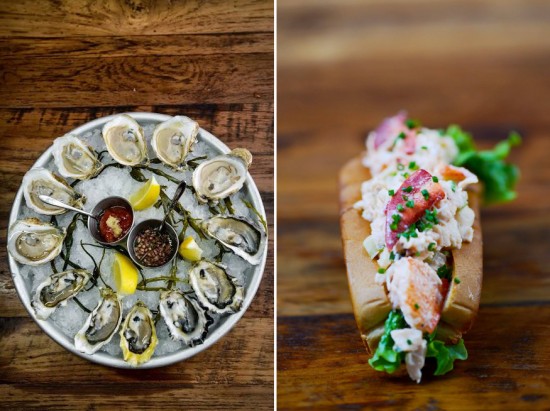
What are some of your proudest accomplishments?
Cull & Pistol was awarded 4 stars by the New York Daily News in 2013. And back in 2007, New York Times critic Frank Bruni called my fideos negros (squid ink pasta) at Mercat on Bond St. one of the "top 10 dishes of the year." We sometimes serve that dish at Cull & Pistol.
What is your advice for current culinary students?
When I started cooking in 2002, my first chef and mentor asked me how long I thought it would take me to become a chef. I hesitantly told him, "five years or so?" I was very wrong. In this current environment (where chefs are considered the new “rock stars” of society), culinary students must resist the temptation to go from A to Z without properly learning the techniques, processes, etiquettes, culinary history and personal development that is required to truly become a good chef.
Twelve years after my first kitchen job, I still learn new things about food on a daily basis. To run a successful restaurant, a chef must be able to master cooking techniques, management skills and be a problem-solver–all at the same time. That’s not something one can learn overnight. In addition, I am a firm believer that working in this field requires more dedication, sacrifice and physical abuse than most jobs will ever ask of you. But it can also offer you tremendous rewards and cultural enrichment, far beyond what you may first imagine when you enter the business.
For example, chefs are enjoying a "golden age," which has—at last—proven that the skillset required for the job is no longer categorized as "unskilled labor." New Yor, in particular,r is in dire need of dedicated culinary professionals that are willing to make the personal investment and commitment to continue the long history of success that has made this city an international dining destination. Aspiring culinary professionals enrolled at ICE or who may be considering doing so have never had so much opportunity available to them, and that alone should motivate them to aspire for excellence. But there are no shortcuts here, only blood, sweat and tears.
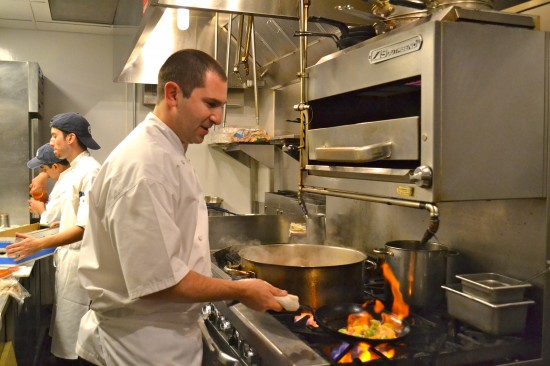
How did ICE help you find your culinary voice?
The Culinary Management program at ICE was instrumental in helping me think analytically from a business standpoint, beyond a culinary "what tastes good and how do I get it on the plate" perspective. As I mentioned before, it’s crucial for chefs to understand the business side of cooking, and ICE helped me to start paying more attention to the interplay between food, service, and décor, as well as the guest experience. I've opened six restaurants since 2003 and the curriculum at ICE helped develop my hospitality philosophy for each of these businesses.
What do you like to do outside the kitchen?
I definitely wish I had more free time to explore my hobbies. Nothing is more rewarding to me than a day of offshore fishing or skiing in deep powder, but raising a family is a huge responsibility and right now I've got my hands full with that. I hope to someday be able to take my kids fishing and skiing and share those special experiences with them.
Interested in opening your own food business? Learn from industry experts at our Meet the Culinary Entrepreneurs events.



